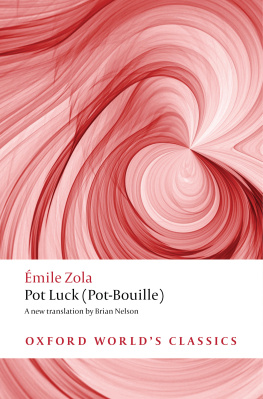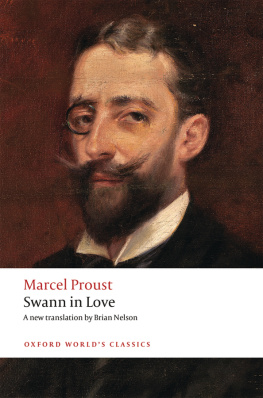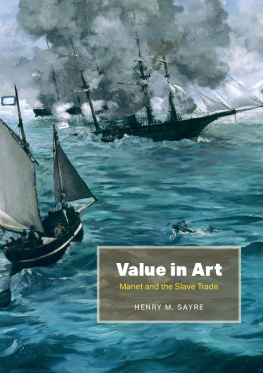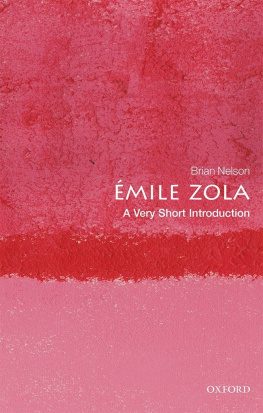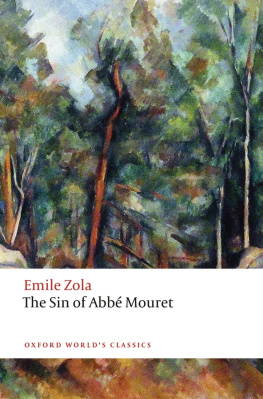mile Zola was born in Paris in 1840, the son of a Venetian engineer and his French wife. He grew up in Aix-en-Provence, where he made friends with Paul Czanne. After an undistinguished school career and a brief period of dire poverty in Paris, Zola joined the newly founded publishing firm of Hachette, which he left in 1866 to live by his pen. He had already published a novel and his first collection of short stories. Other novels and stories followed until in 1871 Zola published the first volume of his Rougon-Macquart series with the subtitle Histoire naturelle et sociale dune famille sous le Second Empire, in which he sets out to illustrate the influence of heredity and environment on a wide range of characters and milieux. However, it was not until 1877 that his novel LAssommoir, a study of alcoholism in the working classes, brought him wealth and fame. The last of the Rougon-Macquart series appeared in 1893 and his subsequent writing was far less successful, although he achieved fame of a different sort in his vigorous and influential intervention in the Dreyfus case. His marriage in 1870 had remained childless but his extremely happy liaison in later life with Jeanne Rozerot, initially one of his domestic servants, gave him a son and a daughter. He died in 1902.
Brian Nelson is Emeritus Professor of French Studies and Translation Studies at Monash University, Melbourne. He is editor of the Australian Journal of French Studies and President of AALITRA (the Australian Association for Literary Translation). His publications include Zola and the Bourgeoisie and The Cambridge Companion to Emile Zola. He has translated and edited Zolas The Ladies Paradise, The Kill, The Belly of Paris and The Fortune of the Rougons for Oxford Worlds Classics. He is a Fellow of the Australian Academy of the Humanities.
Oxford Worlds Classics
For over 100 years Oxford Worlds Classics have brought readers closer to the worlds great literature. Now with over 700 titles-from the 4,000-year-old myths of Mesopotamia to the twentieth centurys greatest novelsthe series makes available lesser-known as well as celebrated writing.
The pocket-sized hardbacks of the early years contained introductions by Virginia Woolf, T. S. Eliot, Graham Greene, and other literary figures which enriched the experience of reading.
Today the series is recognized for its fine scholarship and reliability in texts that span world lilerature,drama and poetry, religion, philosophy and politics. Each edition ineludes perceptive commentary and essential background information to meet the changing needs of readers.

Great Clarendon Street, Oxford ox 2 6 dp
Oxford University Press is a department of the University of Oxford. It furthers the Universitys objective of excellence in research, scholarship, and education by publishing worldwide in
Oxford New York
Athens Auckland Bangkok Bogot Buenos Aires Calcutta Cape Town Chennai Dar es Salaam Delhi Florence Hong Kong Istanbul Karachi Kuala Lumpur Madrid Melbourne Mexico City Mumbai Nairobi Paris So Paulo Singapore Taipei Tokyo Toronto Warsaw
with associated companies in Berlin Ibadan
Oxford is a registered trade mark of Oxford University Press in the UK and in certain other countries
Published in the United States by Oxford University Press Inc., New York
Brian Nelson 1999
The moral rights of the author have been asserted
Database right Oxford University Press (maker)
First published as an Oxford Worlds Classics paperback 1999
Reissued 2009
All rights reserved. No part of this publication may be reproduced, stored in a retrieval system, or transmitted, in any form or by any means, without the prior permission in writing of Oxford University Press, or as expressly permitted by law, or under terms agreed with the appropriate reprographics rights organizations. Enquiries concerning reproduction outside the scope of the above should be sent to the Rights Department, Oxford University Press, at the address above
You must not circulate this book in any other binding or cover and you must impose this same condition on any acquirer
British Library Cataloguing in Publication Data
Data available
Library of Congress Cataloging in Publication Data
Zola, mile, 18401902.
[Pot-bouille. English]
Pot luck / mile Zola : translated with an introduction and notes by Bryan Nelson.
(Oxford worlds classics)
I. Nelson, Brian, 1946.II. Title.
PQ2514.P6E5 1999 843.8dc21 9819514
ISBN 9780199538706
ebook ISBN 9780192593191
Typeset at The Spartan Press Ltd, Lymington, hants
Printed in Great Britain by Clays Ltd, St Ives plc
Contents
Pot Luck is the story of an apartment building and of the juxtaposed lives of its bourgeois tenants and their servantsa simmering, bubbling melting-pot of public and private life, class and gender relations. The novels French title, Pot-Bouille, is virtually untranslatable. Restless House, the title chosen for a previous edition of the novel, captures something of the mood of the buildings tenants and the metaphoric importance of the building itself, though Stew or Stewpot, with their associations with the ordinary meal, household routine, and everyday bourgeois life, are the closest literal equivalents in English. However, there is no term in English which conveys so concisely Zolas idea of a melting-pot of sexual promiscuity, while at the same time incorporating the culinary notion of a stew, as well as a swill of fetid household waste, which is the authors metaphor for the confusions and contradictions of bourgeois society and the messy mishmash of moral and physical corruption concealed beneath the veneer of bourgeois respectability.
Pot Luck is the tenth in Zolas great cycle of twenty novels, Les Rougon-Macquart, on which he began work in 1870 at the age of 30, and to which he devoted the next quarter of a century. The subtitle of the cycle, The Natural and Social History of a Family Under the Second Empire, suggests the way that at one level Zola gives us a documentary account of French society in the second half of the nineteenth century. It is the result of dedicated first-hand observation and researchin the Halles, the department stores, the mines, the French countrysidecombining a novelists skills with those of the investigative journalist in a way that only Balzac can match. In his representation of various milieux Zola always combined the vision of a painter with that of a sociologist, attentive to the patterns and rituals that govern the daily life of a given community. From the vantage-point of the fortunes of one family, Zola examined the political, moral, and above all, sexual landscape of the late nineteenth century, in a way that scandalized the grossly materialistic and hypocritical bourgeois society of France both before and after the disaster of the Franco-Prussian War.
Zolas basic themes include nature, the body, and the working class. His representation of the natural and material world is often more expressionist than impressionist; he animates it with extraordinary anthropomorphic life, giving it a heightened, hallucinatory quality, so that in Pot Luck, for example, the apartment house itself, with its sham faade and filthy inner courtyard, becomes one of the characters of the novel. His symbolic world is deeply marked by patterns of ambivalence, an inversion of signs: the nourishing earth becomes deadly, Eros becomes Thanatos, catastrophe is followed by regeneration. Zolas representation of the body and its affects is similarly ambivalent. Although his vision was puritanical, he broke the mould of Victorian moral cant in his representation of sexual appetites, frustrations, and inhibitions; the most innovative aspect of Zolas Naturalism was its discovery of the body. There is a striking recurrence in his fiction of Oedipal situations and of situations that portray women in ambivalent patterns of attraction/repulsion. In psychoanalytic terms, his fiction describes a painful evolution from an experience of sexuality in terms of nauseous anxiety (reflected in

